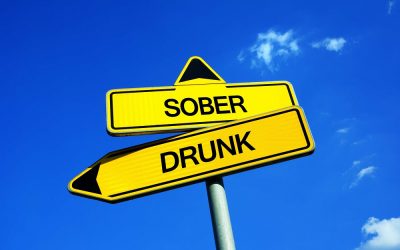Many types of recovery support are available, and many people make use of more than one type at any time and may shift from one type of support to another as recovery proceeds and needs evolve. An increasing number of high schools and colleges offer addiction recovery resources (CRPS, or Collegiate Recovery Programs) for students, including mentors, workshops, dedicated lounges, and group meetings and activities. Below is a sampling of many types of support that can be found.
- This is a protein in the brain and spinal cord that is vital for developing and maintaining the central nervous system (CNS).
- Your recovery from alcohol or other drug addiction will be a lifelong journey, and the Hazelden Betty Ford Foundation will be with you every step of the way.
- Historically, the expectation for recovery has been on choosing a particular therapeutic or self-help path and committing to it.
- Its symptoms also tend to be similar for most addictions, unlike acute withdrawal, which tends to have specific symptoms for each addiction [1].
- They begin to disqualify the positives they have gained through recovery.
Stop Overdose
Job Highlights
Learning how to overcome an addiction is important for anyone experiencing a substance use disorder (SUD), alcohol use disorder (AUD), or behavioral addiction. While challenging, recognizing that there is a problem and learning more about the process of quitting are important first steps in recovery. In 2016, Rutherford created the cloud-based Recovery Data Platform that houses “recovery vital signs” from 70 recovery organizations nationwide. This information can be used by any organization to provide tailored recovery services to program participants. The vital signs include various evidence-based assessments that measure engagement (health outcomes and ratings related to relationships and cravings) and the many sources of recovery capital. The goal, Rutherford explains, is to construct a “recovery story” built from both qualitative and quantitative data for each individual seeking support.
- According to one model of behavior change known as the transtheoretical model, making any kind of change involves a process that starts with pre-contemplation and moves into contemplation.
- Exercise also has positive anti-anxiety and antidepressant effects, making it easier to manage stressful situations and feelings.
- The self-help support group message is that addiction is an ongoing disorder with a danger of relapse.
- The connectedness or integration stages of recovery may increase the desire to explore different healing modalities.
There is life after addiction. Most people recover
Family and couples therapy can be incredibly beneficial in the recovery process. It teaches your family how to provide support during recovery, making you more resilient in the Top 5 Advantages of Staying in a Sober Living House face of setbacks. The goal of detoxification, also called “detox” or withdrawal therapy, is to enable you to stop taking the addicting drug as quickly and safely as possible.
- They are embarrassed to mention that they still have occasional cravings or that they are no longer sure if they had an addiction.
- There is enduring resolution of what once was problem behavior.
- Take the assessment and get matched with a professional, licensed therapist.
- Don’t think only about the negative aspects of your object of addiction; think, too, about the benefits it offers.
Stages of Change in the Addiction Recovery Process
The project is seeking multi-family duplex zoning for the property. That rezoning request will need to go before both the Lawrence-Douglas County Planning Commission and the Lawrence City Commission before the project can move forward. In the meantime, the project will be able to continue securing funds and finalizing decisions about its design and size.
- Sustaining behavior change until new patterns become ingrained is difficult under the best of circumstances.
- These support groups and their recovery Steps provide social support to people when they need it.
- Unlike acute withdrawal, which has mostly physical symptoms, post-acute withdrawal syndrome (PAWS) has mostly psychological and emotional symptoms.
- It’s up to each individual to decide when to begin “working the steps,” and when to approach a sponsor.
- They feel they have lost part of their life to addiction and don’t want to spend the rest of their life focused on recovery.
The alcohol and drug addiction recovery process can look different for each person and is based on the level of care determined for a person, so treatment is often tailored to the individual.4 Program lengths vary. You may choose a 28- or 30-day, 60-day or 90-day inpatient drug rehab stay or an outpatient rehab program, and you might like to opt for specialized treatment options. Research and clinical experience have identified a number of factors that promote recovery. Another is reorienting the brain circuitry of desire—finding or rediscovering a passion or pursuit that gives meaning to life and furnishes personal goals that are capable of supplanting the desire for drugs. A third is establishing and maintaining a strong sense of connection to others; support helps people stay on track, and it helps retune the neural circuits of desire and goal-pursuit. Learning new coping skills for dealing with unpleasant feelings is another pillar of recovery.
Stage 6: Termination
Experts recommend doing an impromptu cost-benefit analysis by filling out a table such as Table 1. Nevertheless, experts see relapse as an opportunity to learn from the experience about personal vulnerabilities and triggers, to develop a detailed relapse prevention plan, and to step up treatment and support activities. Guilt refers https://financeinquirer.com/top-5-advantages-of-staying-in-a-sober-living-house/ to feels of responsibility or remorse for actions that negatively affect others; shame relates to deeply painful feelings of self-unworthiness, reflecting the belief that one is inherently flawed in some way. Shame is an especially powerful negative feeling that can both invite addiction in the first place and result from it.

